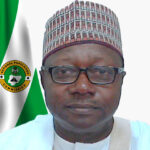
The President and Co-Chief Executive Officer, OPAY, Olu Akanmu, has said Nigeria’s poverty index as released by the World Bank is worrisome and should be addressed.
He urged organisations and marketers to begin to responsibly find innovative ways to solve the large social and commercial exclusion and unlock the potentials of these excluded markets with innovative service and business models that could make them profitable.
Akanmu said this while speaking on the theme, ‘Marketing as a tool for sustainable economic development’, at the 11th Advertisers Association of Nigeria Africa Marketing Excellence Awards in Lagos.
He said, “Can we truly say we are doing responsible marketing in a country like Nigeria if most of us, despite our awards tonight, are not relevant to 50 per cent of the Nigerian population?
“America does not have this large profound exclusion problem, at least not like our context, hence Kotler could have defined marketing with implications that only markets that could be served at a profit are worthy.
“In Nigeria, where 50 per cent of our population is socially excluded, we need to responsibly find innovative ways to solve our large social and commercial exclusion, unlock the potentials of these excluded markets with innovative service and business models that could make them profitable. By doing so, we will double the size of our addressable markets, become more socially relevant while creating inclusive prosperity for all.”
Speaking on the National Bureau of Statistics’ Nigeria poverty index, Akanmu said that poverty in Nigeria was actually worse than what the World Bank estimated.
84 per cent of children under five years in Nigeria were poor due to a lack of intellectual stimulation needed for childhood development, he said.
He added, “65 per cent of poor people – 86 million people – live in the North, while 35 percent – nearly 47 million – live in the South.
“Cry the beloved country. Bayelsa, an oil-producing state has 89 per cent of its people poor, second only to Sokoto with 91 per cent of its people poor. That poverty is prevalent in Nigeria’s urban areas with 42 per cent of urban poor as well as rural areas with 72 per cent of rural poor.”
According to him, “With a Nigerian population of 211 million and 133 million of which are poor, 63 per cent of our people are poor and are probably not being served by our commercial markets who will find them unprofitable.
“We can conclude that our high rate of social exclusion in Nigeria also translates to a high rate of commercial exclusion. That our businesses and our marketers are only serving and relevant to just about 40 per cent of the Nigerian population or at best 50 per cent.”
Also speaking, the President of the Advertisers Association of Nigeria, Osamede Uwubanmwen, stated that it was a known fact that innovation was key to ensuring our reliance and effectiveness in the scheme of things, as such ADVAN has put in place an executive council that will ensure the association is a force to be reckoned with in the industry.
He said, “We are not financial billing plans or links to brand budgets. We are the experts, whose corporate entities have spent so much training and equipping with the needed resources to carry out their day-to-day functions. We are the expert storytellers, who bring brand stories to life.”
The 11th ADVAN Africa Awards witnessed a number of brands winning top categories.
Maltina, a premium malt brand from Nigerian Breweries, emerged winner in the Consumer Brand of the Year with 28 per cent votes.
Milo and Indomie came second and third respectively with 17 per cent and 12 per cent votes.





